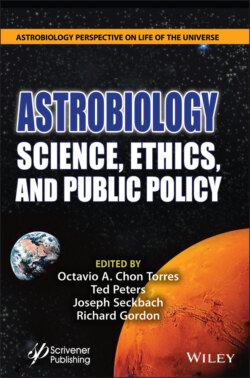Читать книгу Astrobiology - Группа авторов - Страница 29
2.2.3 Third Foundational Question: What Should We Do? 2.2.3.1 From Quandary to Responsibility
ОглавлениеWhat should we do? We have already asked: Who are we? And we asked: What do we value? Now, to answer this third question—What should we do?—we draw on a pair of concepts: quandary and responsibility. No doubt communities and traditions find themselves frequently confronted with a quandary accompanied by a sense of responsibility. Such communities must work through the quandary by drawing practical applications out of their fundamental ethical orientation. Perhaps we can build on this common phenomenon as a foundation for multicultural ethics. We will call it the “Quandary-Responsibility method” within an Astroethics of Responsibility.
First, to demonstrate, today we are confronted by a quandary: How should we think ethically about the prospect of sharing the cosmos with space neighbors? Roman Catholic ethicist Charles Curran provides a framework. “Quandary ethics deal with concrete, objective human situations. In addition, it is here that human reason, science, and human experience predominate” [2.22]. This quandary regarding space exploration and ETI is not religion-specific. It does not begin with dogma and then seek application; rather, it begins with an astroethical question and then surfs the tradition for a helpful answer.
Second, we approach the quandary with a sense of moral responsibility. As the etymology of the Latin, respondere, meaning to answer, suggests, responsibility ethics answers questions raised by our changing situation [2.37]. Responding or answering belongs to the “primordial experience of the Judeo-Christian-Islamic tradition: a call from God that human beings accept or reject” [2.50]. In the present discussion, what calls to us for a response or answer is the quandary posed by new space knowledge.
The Quandary-Responsibility method provides a keeled river raft to navigate the rapids, a stable boat to ride the rushing whitewater of science, technology, and social change. When the quandary is prompted by a situation that lies beyond Earth and more than likely will affect our entire planet, then perhaps we need to think of a single planetary moral agent. It is our global community that should be morally responsive and responsible. To work with the notion of responsibility for earthlings and to work with the idea of a shared commons in space, we will need to commit ourselves to a vision of universality. The universe requires universality.
